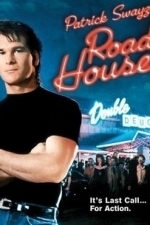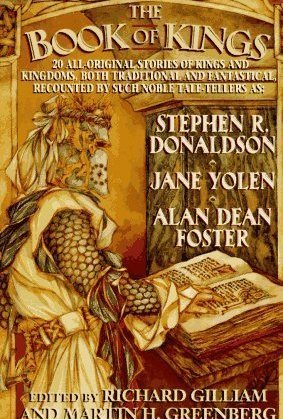Search
Search results
Matthew Krueger (10051 KP) rated Demolition Man (1993) in Movies
Sep 17, 2019 (Updated Sep 17, 2019)
Blade vs Rocky
Demolition Man- is one of those early 90's sci-fi action movies with two big action stars. Well Stallone at the time, Snipes would be in the Blade Trilogy later on.
The Plot: With innocent victims caught in the crossfire in Los Angeles' intensifying war on crime, both cop John Spartan (Sylvester Stallone) and violent thug Simon Phoenix (Wesley Snipes) are sentenced to a state of frozen incarceration known as "CryoPrison." When Spartan is finally thawed 36 years later, it's 2032, and Los Angeles is now a pacifist utopia called San Angeles. But with Phoenix again on the loose, Spartan must team up with future cop Lenina (Sandra Bullock) to apprehend the killer.
Oh yea by the way this movie is set in the future.
I would recorddmend this movie.
The Plot: With innocent victims caught in the crossfire in Los Angeles' intensifying war on crime, both cop John Spartan (Sylvester Stallone) and violent thug Simon Phoenix (Wesley Snipes) are sentenced to a state of frozen incarceration known as "CryoPrison." When Spartan is finally thawed 36 years later, it's 2032, and Los Angeles is now a pacifist utopia called San Angeles. But with Phoenix again on the loose, Spartan must team up with future cop Lenina (Sandra Bullock) to apprehend the killer.
Oh yea by the way this movie is set in the future.
I would recorddmend this movie.
David McK (3676 KP) rated Demolition Man (1993) in Movies
Feb 1, 2021
"There's a new Shepherd in town..."
I think I first saw this movie in the cinema when it came out.
In 1993.
So nearly 30 years ago now (writing this in early 2021).
Starring a pre tax evasion Wesley Snipes, Sylvester Stallone and a very young Sandra Bullock, this is a sci fi actioner set in a (supposedly) utopian future where there is no crime, and in which Snipes character of Simon Phoenix escapes from his cryo-freeze prison (in which he was placed in 1996!), leading the hopelessly outmatched police force of the time to reanimated his original captor John Spartan (Stallone) at the suggestion of the 90s-mad Sandra Bullock Lieutenant Huxley, who was also put on ice after being framed by Phoenix for the killing of 30 civilians.
Yes, it's aged.
Yes, it still well worth a watch.
In 1993.
So nearly 30 years ago now (writing this in early 2021).
Starring a pre tax evasion Wesley Snipes, Sylvester Stallone and a very young Sandra Bullock, this is a sci fi actioner set in a (supposedly) utopian future where there is no crime, and in which Snipes character of Simon Phoenix escapes from his cryo-freeze prison (in which he was placed in 1996!), leading the hopelessly outmatched police force of the time to reanimated his original captor John Spartan (Stallone) at the suggestion of the 90s-mad Sandra Bullock Lieutenant Huxley, who was also put on ice after being framed by Phoenix for the killing of 30 civilians.
Yes, it's aged.
Yes, it still well worth a watch.
Heather Cranmer (2721 KP) created a post
May 10, 2022
Gordon Gano recommended track All Along the Watchtower by Bob Dylan in Greatest Hits, Vol. 1 - 3 by Bob Dylan in Music (curated)
Mike Wilder (20 KP) rated Road House (1989) in Movies
May 30, 2018
Very underrated
Contains spoilers, click to show
So what kind of film do you get when you have great one liners, bar fights, guns, knives, egos, strippers, blues music, a polar bear and a monster truck? You get one of the most enjoyable and entertaining films of the late 80's, Road House. The film follows James Dalton (Patrick Swayze) a cooler (bouncer) and the best in the business, as he takes employment with Frank Tilghman (Kevin Tighe) the owner of the Double Deuce in Jasper, Missouri. The bar is the roughest in town and he needs Dalton to clean it up. However corrupt business man and crime boss Brad Wesley (Ben Gazzara) stands in his way. After the classic "chick flick" Dirty Dancing, Patrick Swayze was Hollywood gold. Women loved him and men wanted to be him. The film was full of romance. Then along came Road House, a complete opposite to Dirty Dancing, a little romance and loads of action. The film has a great cast including Patrick Swayze, Kevin Tighe, Ben Gazzara, Kelly Lynch, Marshall R. Teague, Red West, Kathleen Wilhoite, John William Young, John Doe, Kurt James Stefka, Keith David & Terry Funk. The cast works well together and it is full of great performances. Naturally Patrick Swayze at the height of his career stands miles apart from the rest of the cast as Dalton. A character that can hurt you with his words just as much as his fists. Tragically, 20 years later Swayze had his life cut short by cancer. His death is still a major loss to the entertainment industry, but his legacy will live on in the great performances and memorable characters he played. The film also a features a great performance by the late great blues guitarist Jeff Healey as Cody. It's the music in the film that goes a long way to achieving the right feel for the film. Everything works well from the characters, the music to the setting. Set in a rural area the scenery is breath-taking and it is used to great effect. But it's the fight choreography that stands out from many other films. Great bar fights are pretty much a thing of the past, but here they are full of action and humour just like the classic westerns. The one on one fights are brutal, mainly for the realism they portray. The script is awesome and full of classic lines mainly from Dalton and although many are cheesy, when he says it, it feels right. The director surprisingly hasn't made many films but the ones I have seen of his I really like and I know I am in the minority. See my review of Gladiator (1992) for more by this director. This is truly a great film, although very underrated. It is also one of my personal all-time favourites. There are a couple of versions of this so ensure that you see the USA or UK version released after 2002 as these are the uncut editions. So grab a few beers and a few friends, but this on a big screen and turn the sound way up for a really great movie experience.
Mandy and G.D. Burkhead (26 KP) rated The Book of Kings in Books
May 20, 2018
Shelf Life – The Book of Kings Has a Few Gems and a Few Warts
Contains spoilers, click to show
Unlike other short story anthologies I could mention, this one wasn’t mostly horrible. Instead, the stories inside run the gamut from stupid to brilliant and from annoying to nothing special to fun and memorable. A little something for everyone, then.
So since I can’t review it with one blanket sentiment, let’s instead take a quick look at a handful of the 20 all-original stories inside. The following are the tales that most stood out to me during my reading, for better or worse.
“The Kiss” by Alan Dean Foster – A woman walking through a snowy city finds a frog who says he’s a prince, so she kisses him. He turns into a guy and stabs her to death.
Oh boy, we’re not off to a great start here. This story could have been told in a page or so and been an interesting twist on the old tale, but instead the author drew it out over three pages by choosing the absolute most pretentious choice of words for every damn sentence. The guy doesn’t stab the woman, his “knife describes a Gothic arc.” She doesn’t shout or whisper or ask what’s going on, she “expels a querrelous trauma.” It’s not snowing on her face, “trifles of ice as beautiful as they were capricious tickled her exposed cheeks, only to be turned into simulacra of tears as they were instantly metamorphosed by the bundled furnace of her body.”
Yes, really.
The sheer purpleness of this prose might be excused for a deliberately lofty and overwrought tale, but it absolutely does not fit a story about a girl getting shanked by a frog on the street. If the contrast between what’s happening and how it’s presented is supposed to seem absolutely ridiculous, then it’s a success. This reads more like a writing exercise for seeing how unbearably melodramatic you can tell a simple story that the author went ahead and published anyway. I only read it last night as of the time of this particular bit of review, but I still have a headache.
“Divine Right” by Nancy Holder – A king grieving for his recently passed daughter and only heir tries to figure out how to keep his legacy from dying out and eventually decides on a way to choose a successor, sealing his decision by making a pact with God.
I really liked this one, partly for the great characterization of the king via his priorities. He’s not a bastion of righteousness or a tyrannical despot. He might be a pretty decent ruler, or he might not, depending on your priorities and the angle from which you view him. Mostly he’s written to be believable for his position and time period, pride and failings and all.
But what really sealed this story for me was the ironic bent of the plot that I can’t really discuss in any more depth without spoiling it except to say that it definitely fit with the tone and left an appropriate message. So let’s just give it a thumbs up and leave it at that.
“In the Name of the King” by Judith Tarr – If you know the story of Hatshepsut, an Egyptian queen who ruled as Pharaoh, then this is an extra interesting story. It follows both Hatshepsut and her lover in the afterlife and the legacy they’re leaving behind after their deaths, in which they take a surprisingly active interest for dead people.
If you know your history, though, you know where this is going, and it’s very touching as it gets there. It’s also character-centric in a way that makes its dead cast members seem very much alive. This one’s a good contender for my favorite story in the whole anthology.
“Please to See the King” by Debra Doyle and James D. Macdonald – A small glimpse of about one evening each into the lives of two seemingly unrelated, seemingly unimportant men against the backdrop of the battles being fought over a vague and distant rebellion against a vague and distant crown.
To say more would be to spoil the story, which is short, sweet, and interesting. It gives you just enough details, and no more, that you can piece together a much deeper story with room left for speculation about who certain characters really were and what exactly just happened. I’ve spent more time thinking about how the ending may be interpreted than it took me to read it, which is a good sign of nuance done right.
“The Name of a King” by Diana L. Paxson – This’n c’n rightf’ly b’ put in w’ th’ other st’ries I woul’n’t oth’rwise b’ther t’ mention ‘cept fer th’ o’erwrought dialectic style o’ nearly all o’ th’ dialogue, whut c’n git on yer nerves right quick-like whene’er any’ne op’ns their mouths. An’ while I’m ‘ere, th’ settin’ w’s rife wi’ plen’y o’ hints at deeper d’tails whut was ne’er sufficien’ly delved into or whut impact’d th’ actu’l plot much. Felt like part o’ a fant’sy series whut I was ‘spected t’ b’ f’miliar wit’ but wasn’t, an’ whut di’n’t give me ’nuff t’ git f’miliar wit’ just fr’m this st’ry.
Oth’rwise, t’w’sn’t t’ b’d, I s’pose. Bit borin’.
“Coda: Working Stiff” by Mike Resnick and Nicholas A. DiChario – This one was just fun. Again trying not to give away any twists or revelations, this one follows a journalist interviewing a bus driver who used to be a big, famous king back in his heyday but is now content (or so he says) with his obscure life of working a simple job in the day and drinking in his spartan home at night.
Who this ex-king really is probably isn’t who you think it’s gonna be at first, but the story does still technically, and cheekily, fit in with the premise of the book overall. It reminds me very much of something Neil Gaiman might have written, or maybe Terry Pratchett if he’d decided to tackle the kingly premise from a more modern and realistic approach.
There are still 14 stories left in here, many of which are also good reads, or at least decent. In fact, looking back through it again, the only real dud that stands out to me is “The Kiss.” The weakest of what’s left are either adaptations of stories that didn’t really do it for me (“The Tale of Lady Ashburn” by John Gregory Betancourt) or weird original works that weren’t really memorable in what they set out to do (“A Parker House Roll” by Dean Wesley Smith).
Overall, The Book of Kings is a fun and interesting romp through a number of royal worlds, themes, and tones. As such, anyone who gives it a look will probably have the same general sentiment I did at the end, with a few things to like and a few to point to as examples of what doesn’t work for them. Me, I got a bit of the inspiration I was looking for and a few memorable tales out of it, so I’ll forgive the warts.
So since I can’t review it with one blanket sentiment, let’s instead take a quick look at a handful of the 20 all-original stories inside. The following are the tales that most stood out to me during my reading, for better or worse.
“The Kiss” by Alan Dean Foster – A woman walking through a snowy city finds a frog who says he’s a prince, so she kisses him. He turns into a guy and stabs her to death.
Oh boy, we’re not off to a great start here. This story could have been told in a page or so and been an interesting twist on the old tale, but instead the author drew it out over three pages by choosing the absolute most pretentious choice of words for every damn sentence. The guy doesn’t stab the woman, his “knife describes a Gothic arc.” She doesn’t shout or whisper or ask what’s going on, she “expels a querrelous trauma.” It’s not snowing on her face, “trifles of ice as beautiful as they were capricious tickled her exposed cheeks, only to be turned into simulacra of tears as they were instantly metamorphosed by the bundled furnace of her body.”
Yes, really.
The sheer purpleness of this prose might be excused for a deliberately lofty and overwrought tale, but it absolutely does not fit a story about a girl getting shanked by a frog on the street. If the contrast between what’s happening and how it’s presented is supposed to seem absolutely ridiculous, then it’s a success. This reads more like a writing exercise for seeing how unbearably melodramatic you can tell a simple story that the author went ahead and published anyway. I only read it last night as of the time of this particular bit of review, but I still have a headache.
“Divine Right” by Nancy Holder – A king grieving for his recently passed daughter and only heir tries to figure out how to keep his legacy from dying out and eventually decides on a way to choose a successor, sealing his decision by making a pact with God.
I really liked this one, partly for the great characterization of the king via his priorities. He’s not a bastion of righteousness or a tyrannical despot. He might be a pretty decent ruler, or he might not, depending on your priorities and the angle from which you view him. Mostly he’s written to be believable for his position and time period, pride and failings and all.
But what really sealed this story for me was the ironic bent of the plot that I can’t really discuss in any more depth without spoiling it except to say that it definitely fit with the tone and left an appropriate message. So let’s just give it a thumbs up and leave it at that.
“In the Name of the King” by Judith Tarr – If you know the story of Hatshepsut, an Egyptian queen who ruled as Pharaoh, then this is an extra interesting story. It follows both Hatshepsut and her lover in the afterlife and the legacy they’re leaving behind after their deaths, in which they take a surprisingly active interest for dead people.
If you know your history, though, you know where this is going, and it’s very touching as it gets there. It’s also character-centric in a way that makes its dead cast members seem very much alive. This one’s a good contender for my favorite story in the whole anthology.
“Please to See the King” by Debra Doyle and James D. Macdonald – A small glimpse of about one evening each into the lives of two seemingly unrelated, seemingly unimportant men against the backdrop of the battles being fought over a vague and distant rebellion against a vague and distant crown.
To say more would be to spoil the story, which is short, sweet, and interesting. It gives you just enough details, and no more, that you can piece together a much deeper story with room left for speculation about who certain characters really were and what exactly just happened. I’ve spent more time thinking about how the ending may be interpreted than it took me to read it, which is a good sign of nuance done right.
“The Name of a King” by Diana L. Paxson – This’n c’n rightf’ly b’ put in w’ th’ other st’ries I woul’n’t oth’rwise b’ther t’ mention ‘cept fer th’ o’erwrought dialectic style o’ nearly all o’ th’ dialogue, whut c’n git on yer nerves right quick-like whene’er any’ne op’ns their mouths. An’ while I’m ‘ere, th’ settin’ w’s rife wi’ plen’y o’ hints at deeper d’tails whut was ne’er sufficien’ly delved into or whut impact’d th’ actu’l plot much. Felt like part o’ a fant’sy series whut I was ‘spected t’ b’ f’miliar wit’ but wasn’t, an’ whut di’n’t give me ’nuff t’ git f’miliar wit’ just fr’m this st’ry.
Oth’rwise, t’w’sn’t t’ b’d, I s’pose. Bit borin’.
“Coda: Working Stiff” by Mike Resnick and Nicholas A. DiChario – This one was just fun. Again trying not to give away any twists or revelations, this one follows a journalist interviewing a bus driver who used to be a big, famous king back in his heyday but is now content (or so he says) with his obscure life of working a simple job in the day and drinking in his spartan home at night.
Who this ex-king really is probably isn’t who you think it’s gonna be at first, but the story does still technically, and cheekily, fit in with the premise of the book overall. It reminds me very much of something Neil Gaiman might have written, or maybe Terry Pratchett if he’d decided to tackle the kingly premise from a more modern and realistic approach.
There are still 14 stories left in here, many of which are also good reads, or at least decent. In fact, looking back through it again, the only real dud that stands out to me is “The Kiss.” The weakest of what’s left are either adaptations of stories that didn’t really do it for me (“The Tale of Lady Ashburn” by John Gregory Betancourt) or weird original works that weren’t really memorable in what they set out to do (“A Parker House Roll” by Dean Wesley Smith).
Overall, The Book of Kings is a fun and interesting romp through a number of royal worlds, themes, and tones. As such, anyone who gives it a look will probably have the same general sentiment I did at the end, with a few things to like and a few to point to as examples of what doesn’t work for them. Me, I got a bit of the inspiration I was looking for and a few memorable tales out of it, so I’ll forgive the warts.



